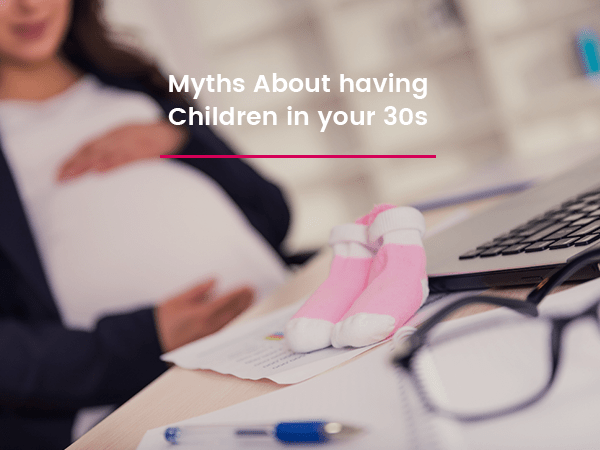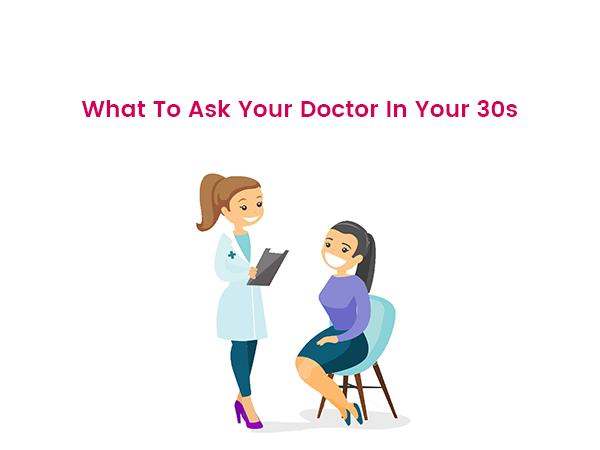According to the most recent figures from the Office of National Statistics, the average age of a first time mother has increased to 28.8 years. More than half (54%) of all babies were born to mothers aged 30 or over, a significant increase from 1996 – when 41% babies were born to mothers in the 30+ demographic and 48% in 2006. Despite these statistics highlighting the trend for women to start a family later in life in comparison with previous decades, there continue to be perpetuating misconceptions when it comes to fertility and raising children for women in their late thirties.
MYTH ONE: It will take you longer to get pregnant if you try to conceive in your late thirties
Over 80% of couples conceive within one year if the woman is aged under 40 years, they do not use contraception and regularly have sexual intercourse. This percentage decreases slightly the closer to 40 years of age a woman gets.
MYTH TWO: It’s uncommon to become a mum in your late thirties, as your fertility decreases.
It is, in fact, quite common. Almost one fifth (17.7%) of all births in 2016-17 were by mothers aged 35-39. Hence, it is definitely not uncommon to fall pregnant in your late 30s.
MYTH THREE: You are more at risk of a miscarriage, if you’re pregnant in your late thirties
Yes, there is a slightly higher risk of miscarriage. In women under thirty, one in ten pregnancies will end in a miscarriage. In women aged between 35-39, this increases slightly to up to two in ten pregnancies. One in four women will experience a miscarriage in their lifetime. For most women, a miscarriage is a one-off event and they go on to have a successful pregnancy in the future.
As traumatic and difficult as an early miscarriage can be, it is usually the body’s quality control mechanism that ensures that an embryo developed from a genetically abnormal egg (or, less commonly, sperm) does not proceed.
MYTH FOUR: If you are pregnant over the age of 35, you must have had IVF
No. 80% couples conceive naturally within one year up until the age of 40. In 2016, 42% of patients undergoing IVF treatment cycles were under 35. 23% were aged between 35–37, 14% aged 38–39, 14% aged 40–42 and 4% aged 43–44. The median age for an IVF patient was 35.5 years old.
Couples who are struggling to conceive naturally, should consider investigation and treatment as early as possible as the chances of fertility treatment success begins to decline rapidly from your late 30s.
MYTH FIVE: You are classed as a ‘geriatric’ mother
The term is generally not used by doctors due to its obvious negative associations. The NHS does not refer to women in their thirties having children as ‘geriatric’ – it is thought to be a term previously used a few decades ago.
There is no absolute ‘edge of a cliff’ cut off point after which the risks of falling pregnant suddenly start to plummet. This has to be individually discussed with women at all ages, taking into account their health and wellbeing also.
MYTH SIX: You’re more at risk of having complications during pregnancy and childbirth
There are slightly more risks of complications during pregnancy and childbirth for first time mothers in their late thirties. These include a higher chance of diabetes, pre-eclampsia, high blood pressure, miscarriage and having a baby with Down’s Syndrome. However, the majority of these women are fit, healthy and likely to have straightforward births and healthy babies.
All in all, there are certain risks in pregnancy and childbirth for woman as they get older – which is the case of most health conditions, if we’re honest – but this is by no means the case of the majority. The majority of mothers in their late 30s are fit, healthy and likely to have straightforward births and healthy babies.
With more and more women choosing to start a family later on life, isn’t it time we put a stop to the negative, and often sexist, labels and associations with first time mothers who may be past the age of 35? The outdated terminology could do with an overhaul.








,